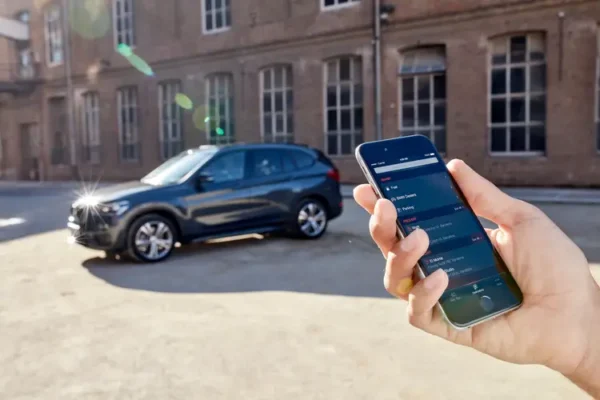
3 Tips For Deciphering Whether Your New Business Needs A Vehicle

The United Kingdom has seen double digits growth in startups, with a 6.45 percent increase in 2018. For any startup trying to kick start their business venture, equipping themselves with the right tools is sure to help. This means choosing the right workforce, machinery, business website and, of course, a business vehicle. While acquiring a business vehicle from the get-go is not a necessity for most startups, it does bring with it some handy benefits for a new business on the block. In fact, 59 percent of business owners said they needed a vehicle to operate their small business. It can increase your accessibility, open up new growth avenues, minimise shipping costs and as a result, boost your business’ bottom line. However, like any major investment decision, choosing whether and when to add a business vehicle to your startup requires forethought, planning, and a close look at just how suitable it may be for your business financially and otherwise.
Knowing When It’s Time To Invest In A Business Vehicle
Picking the right time to invest in a business vehicle is as important as choosing the right time to dispose of/upgrade it, since you do not want to interrupt the business’ cash flow or slow down business operations. Instead, the decision to integrate a business vehicle into your organisation should be done in a way that benefits your business. Startups are notorious for having variable cash flows and a sometimes nonexistent bottom line. Ideally, businesses want to wait until this regulates. The financial reach of the business will also dictate whether it can afford a new or second-hand vehicle and will purchase outright or lease it. Alternatively, there are some startups where the industry nature will call for the use of a business vehicle, such as a food delivery place. Some businesses like these will call for a vehicle to be outfitted with specialised features.
In addition to having the financial means to accommodate the purchase price, lease payments and ongoing financial commitments, start-ups need to be ready to commit the manpower in this area. This may mean hiring additional staff to operate the vehicle or drafting in additional staff. Finally, if there looks to be an impending rise in activity – whether sales or transport needs – then it may be the perfect time for a start-up to invest in a business vehicle. Businesses want to be sure that not only can they afford a business vehicle, but as an additional business asset, it will be used effectively and generate an acceptable return. Business vehicles can also be used to produce non-tangible benefits such as providing employee transportation. While it does not directly add to the sales position at the end of the day, it does improve the work environment for employees and improve productivity.
Knowing The Value That A Vehicle Will Add To Your Business
That being said, adding a business vehicle to your business assets can have endless benefits to your start-up. The first and most glaring one is the full control over the logistics of your business. This means the business can control a larger portion of the supply chain for the business or even the entire delivery process from the initial customer purchase order (if the vehicle is used for delivery purposes).
Having a company vehicle can also offer start-up businesses tax advantages as well. Businesses in the United Kingdom can claim tax reductions on their motor vehicles. According to the 2019 tax deduction rules by HMRC, companies that lease a company vehicle may be able to claim the lease payments as a business expense and up to 50 percent of the VAT if they are registered for standard rate VAT. If the CO2 emissions exceed 110g/km, there is a 15 percent disallowance, meaning that only up to 85 percent of the cost is tax-deductible. For vehicles that are purchased outright, the mileage and car benefit allowance are calculated using preset COs limits and the vehicle’s list price. Be aware that these change every tax year (5th-6th April) so it’s worth checking the updated vehicle benefit rates by HMRC regularly.
Knowing How Much To Spend On A Business Vehicle
The 1/10th rule is recommended by experts for anyone looking to purchase a personal car. However, for a new business, there is no such rule. Start-ups can, however, use certain markers to help them decide on a spending limit. The amount of finance readily available will narrow down options for financing your business vehicle. Buying a vehicle outright (second hand or brand new) relieves the business of interest charges, but also means they need to take into consideration the full responsibilities of disposal, vehicle maintenance, oil changes, as well as Full Service Semi Truck Repair and Reefer Repair. It also means that businesses need to have the full cost of a business vehicle in their retained earnings or a business loan guaranteed. Opting for a second-hand vehicle can cut these costs, and with the help of online vehicle resale platforms, start-ups and small businesses can identify new and used vehicles on offer locally to fit their budget. They also need to incorporate aftercare costs, including insurance and maintenance.
Startups and SMEs are already faced with challenging financial roadblocks during their initial years. Adding the financial commitment of a business vehicle only adds weight to a very delicately balanced scale. Therefore, before they decide to invest in an asset such as a vehicle, start-ups must be sure that the benefits outweigh the costs, including the costs of outsourcing it. Taking the time to consider the appropriateness, the value it adds, and the ability of the start-up to afford a business vehicle can save them a lot of financial uncertainty down the road.














































